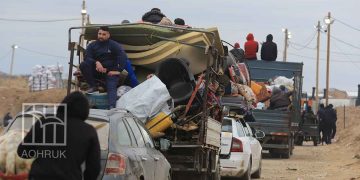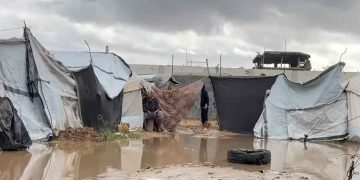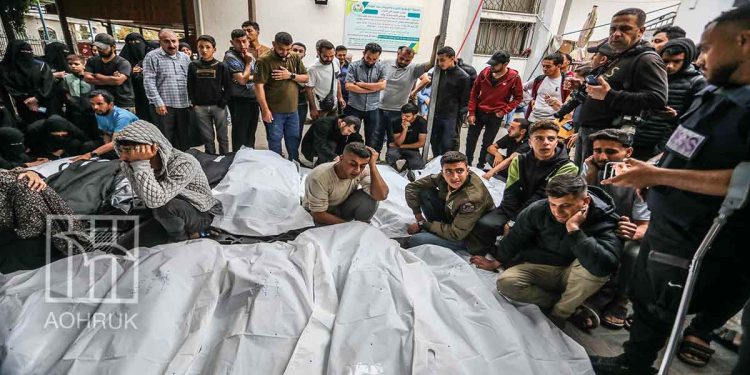The Israeli occupation army has continued its assault on the Gaza Strip, killing 24 Palestinians since the early hours of Monday in multiple attacks targeting homes and displacement tents across various areas of the enclave.
This escalation forms part of the ongoing genocidal war launched by the Israeli occupation since 7 October 2023, which has so far resulted in over 66,000 deaths and 168,000 injuries, most of them women and children.
Medical sources and eyewitnesses reported that airstrikes hit neighbourhoods in Gaza City and Khan Younis. Meanwhile, the Israeli occupation forces withdrew slightly from an area in Al-Nasr neighbourhood in western Gaza after deploying explosive-laden and remote-controlled vehicles that detonated within residential zones.
In northern Gaza, 20 people were killed. Ten of them perished in a strike near the Al-Suweidi area in Al-Nasr and were taken to Al-Shifa Hospital. Another four civilians were killed when a displacement tent in Al-Katiba was bombed.
Five members of the Badwan family were killed in a dawn airstrike in the Al-Zaytoun neighbourhood, while Al-Shuja’iyya experienced heavy aerial bombardment.
In central Gaza, two Palestinians were killed at dawn, one in a tent strike north of Al-Nuseirat camp and another in an airstrike for which details remain unclear.
In Rafah (southern Gaza), a Palestinian civilian was shot dead and others injured by Israeli gunfire near an aid distribution point in the Al-Shakoush area. The Israeli occupation army continues to target civilians waiting for food assistance at what many Palestinians now refer to as “death traps.”
In Khan Younis, remote-controlled explosive vehicles destroyed several residential blocks in the Al-Katiba area, causing widespread devastation and loss of life.
The targeting of civilians, residential buildings, and humanitarian aid distribution centres constitutes a grave breach of international humanitarian law and a direct violation of the Fourth Geneva Convention, which obligates occupying powers to protect civilian populations. The systematic targeting of homes and displacement shelters, alongside siege and enforced famine, are defining elements of genocide as outlined in the 1948 UN Convention.
Repeated strikes on civilians awaiting food assistance, outside the oversight of the UN and humanitarian organisations, highlight a clear intent to inflict mass casualties. These actions reinforce the classification of such acts as crimes against humanity and fully-fledged acts of genocide.
Given the ongoing atrocities, the international community must assume its legal and moral responsibility, not only through statements of condemnation but through urgent action to halt the assault, ensure civilian protection, and bring those responsible for these crimes to justice before international courts.

























